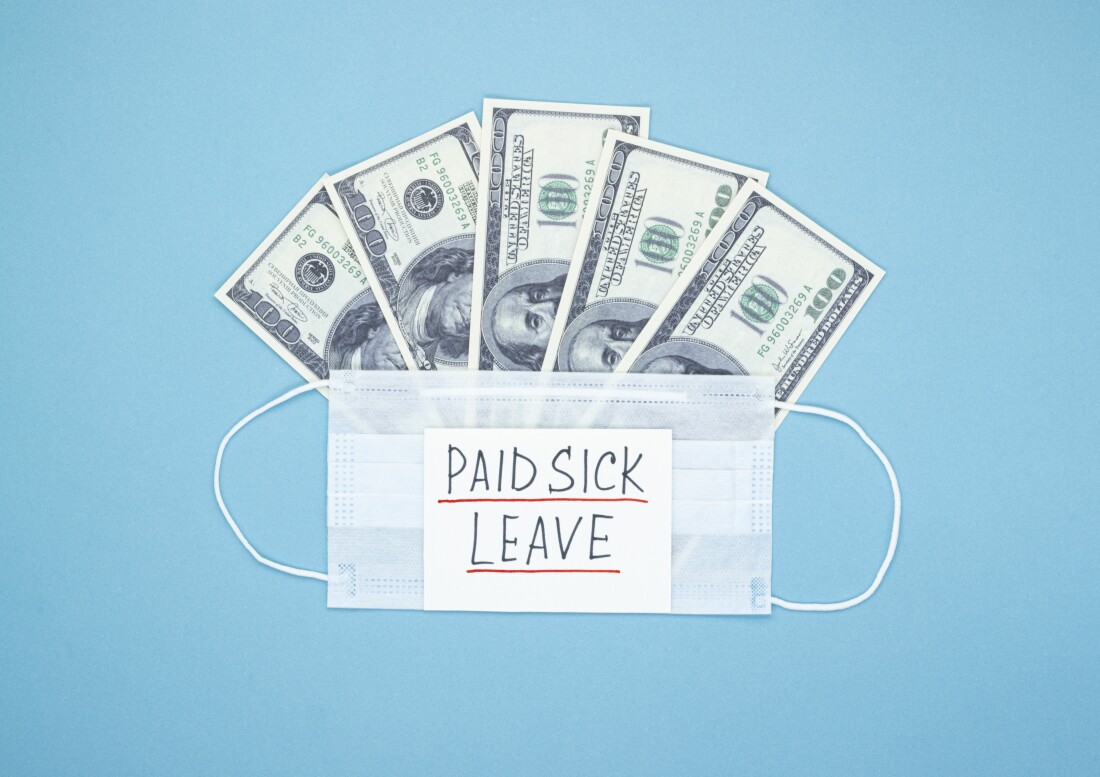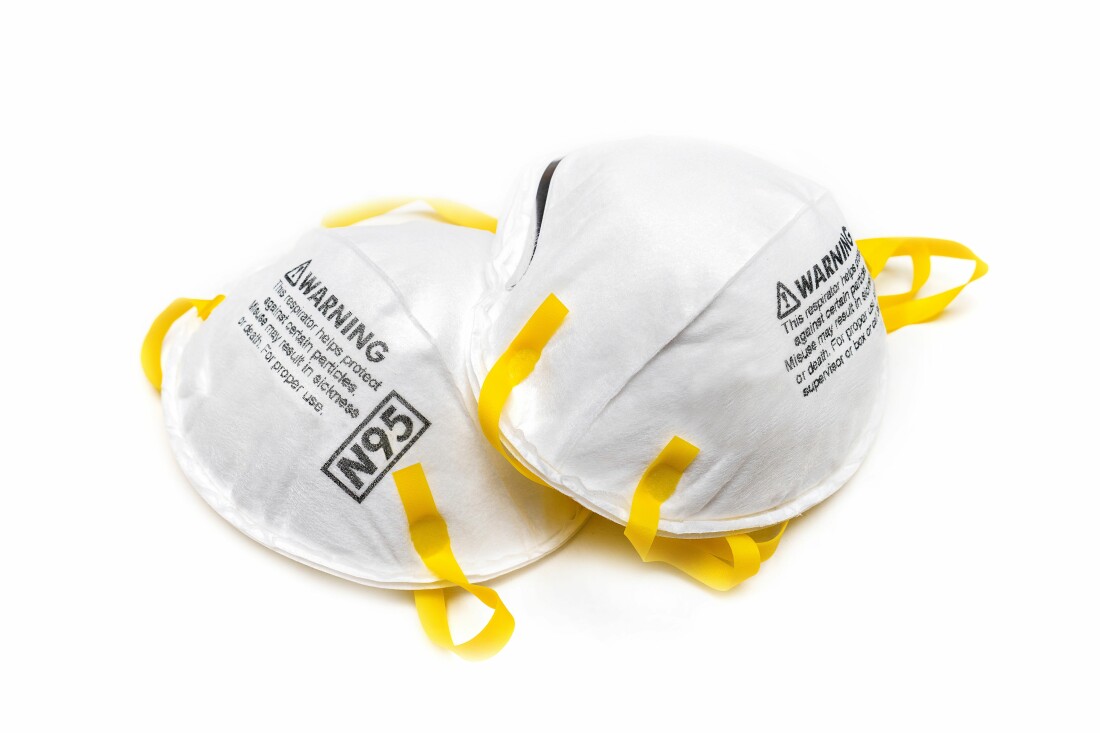Showing 19 posts by Michael A. Cassar.
COVID-19 Related Paid Leave Tax Credits Extended Into 2021
 The federal government enacted the Families First Coronavirus Response Act (“FFCRA”) on March 18, 2020. The FFCRA was intended to provide support to workers who were unable to work while complying with government-mandated quarantines following exposure to COVID-19 or while taking care of someone else in quarantine. The law required employers with fewer than 500 employees (“covered employers”) to pay certain employees Emergency Paid Sick Leave, Emergency Family Medical Leave and/or Expanded Emergency Family and Medical Leave (together, “FFCRA Leave”) as more fully described below. Read More ›
The federal government enacted the Families First Coronavirus Response Act (“FFCRA”) on March 18, 2020. The FFCRA was intended to provide support to workers who were unable to work while complying with government-mandated quarantines following exposure to COVID-19 or while taking care of someone else in quarantine. The law required employers with fewer than 500 employees (“covered employers”) to pay certain employees Emergency Paid Sick Leave, Emergency Family Medical Leave and/or Expanded Emergency Family and Medical Leave (together, “FFCRA Leave”) as more fully described below. Read More ›
Categories: COVID-19 and Workers' Compensation, Employee Benefits, Employment, Workers' Compensation
Appeals Court Rejects Comp Benefits in ‘Special Mission’ Case
 On December 17, 2020, in an unpublished per curium decision, the Michigan Court of Appeals reversed an award of workers' compensation survivor’s benefits that had been given to a widow whose spouse had been killed while he was traveling to a class the employer had encouraged him to attend and for which the employer had paid pursuant to its employee education assistance and tuition reimbursement program. See Lewis v LexaMar Corp, Mich App __ (2020). Read More ›
On December 17, 2020, in an unpublished per curium decision, the Michigan Court of Appeals reversed an award of workers' compensation survivor’s benefits that had been given to a widow whose spouse had been killed while he was traveling to a class the employer had encouraged him to attend and for which the employer had paid pursuant to its employee education assistance and tuition reimbursement program. See Lewis v LexaMar Corp, Mich App __ (2020). Read More ›
Categories: Case Law Updates, Employment, Workers' Compensation
Deputy Director of LEO Issues New Emergency Rule Affecting Workers’ Compensation
 On October 2, 2020, the Michigan Supreme Court ruled that the law upon which Governor Gretchen Whitmer relied to extend the State of Emergency after April 30, 2020 is unconstitutional. The Supreme Court's ruling, which we discuss here, invalidates the Governor's Executive Orders issued during the extended State of Emergency. Executive Order 2020-128, issued on June 18, 2020, established a rebuttable presumption that a "COVID-19 Response Employee" (a term which was not well-defined within the Executive Order) has sustained a compensable injury when he or she is diagnosed with COVID-19. Executive Order 2020-128 contained language quite similar to the March 30, 2020 Emergency Rule issued by the Department of Labor and Economic Opportunity ("LEO"). Read More ›
On October 2, 2020, the Michigan Supreme Court ruled that the law upon which Governor Gretchen Whitmer relied to extend the State of Emergency after April 30, 2020 is unconstitutional. The Supreme Court's ruling, which we discuss here, invalidates the Governor's Executive Orders issued during the extended State of Emergency. Executive Order 2020-128, issued on June 18, 2020, established a rebuttable presumption that a "COVID-19 Response Employee" (a term which was not well-defined within the Executive Order) has sustained a compensable injury when he or she is diagnosed with COVID-19. Executive Order 2020-128 contained language quite similar to the March 30, 2020 Emergency Rule issued by the Department of Labor and Economic Opportunity ("LEO"). Read More ›
Categories: COVID-19 and Workers' Compensation, Legislative Updates
Recent Michigan Supreme Court Decision Affects Workers' Comp COVID-19 Rebuttable Presumption
 On October 2, 2020, the Michigan Supreme Court issued an opinion regarding whether Governor Gretchen Whitmer had the authority to declare and extend a State of Emergency and issue Executive Orders related to the COVID-19 pandemic. In a lengthy opinion, the Court held that the Governor did not have proper authority because the law upon which she relied is unconstitutional. Read More ›
On October 2, 2020, the Michigan Supreme Court issued an opinion regarding whether Governor Gretchen Whitmer had the authority to declare and extend a State of Emergency and issue Executive Orders related to the COVID-19 pandemic. In a lengthy opinion, the Court held that the Governor did not have proper authority because the law upon which she relied is unconstitutional. Read More ›
Categories: COVID-19 and Workers' Compensation, Legislative Updates
Michigan Legislators Propose Amendment to Workers’ Compensation Law to Benefit Certain COVID-19 Positive Employees
 As you will recall, the Director of the Michigan Department of Labor and Economic Opportunity promulgated Emergency Rules (“Rules”) on March 30, 2020 in response to the COVID-19 pandemic. As we discussed in a previous blog post, the Rules establish a rebuttable presumption of personal injury for “first response employees” who are diagnosed with COVID-19. Now, the Michigan legislature is getting involved in the issue. Read More ›
As you will recall, the Director of the Michigan Department of Labor and Economic Opportunity promulgated Emergency Rules (“Rules”) on March 30, 2020 in response to the COVID-19 pandemic. As we discussed in a previous blog post, the Rules establish a rebuttable presumption of personal injury for “first response employees” who are diagnosed with COVID-19. Now, the Michigan legislature is getting involved in the issue. Read More ›
Categories: COVID-19 and Workers' Compensation, Legislative Updates
Michigan's Emergency Rules Give Personal Injury Presumption to "First Response Employees" with COVID-19
As you know, Governor Gretchen Whitmer recently declared a State of Emergency in response to the COVID-19 pandemic. As part of that response, Governor Whitmer, in conjunction with the Director of the Department of Labor and Economic Opportunity, Jeff Donofrio, promulgated Emergency Rules (“Rules”) regarding workers’ compensation coverage for certain employees working in the health field, including first responders. We discussed the Rules in an earlier article, and we prepared this article in response to several questions we have received from clients in order to clarify some of the ambiguities in the Rules.
Categories: COVID-19 and Workers' Compensation
Appeals Court: J-1 Visa Employee at MSU Ineligible for Workers' Compensation
 In May 2019, the Michigan Court of Appeals decided Kuhlbert v Michigan State University. This case examines several interesting workers' compensation issues which we will analyze in a three-part series. Today, we discuss the case’s complicated facts and procedural history, and whether the plaintiff should be considered an “employee” pursuant to Michigan’s Workers' Disability Compensation Act (the “Act”). For more on the facts surrounding this case, see full article here.
In May 2019, the Michigan Court of Appeals decided Kuhlbert v Michigan State University. This case examines several interesting workers' compensation issues which we will analyze in a three-part series. Today, we discuss the case’s complicated facts and procedural history, and whether the plaintiff should be considered an “employee” pursuant to Michigan’s Workers' Disability Compensation Act (the “Act”). For more on the facts surrounding this case, see full article here.
Categories: Case Law Updates, Workers' Compensation
What is a Good-Faith Job Search Effort? Michigan Legislature Considers New Bill
MCL 418.301(5) sets forth the four requirements a claimant must satisfy in order to qualify for workers' compensation wage loss benefits. The claimant must:
- Disclose his qualifications and training,
- Provide a list of jobs he is qualified and trained to perform within the same salary range as the job at which he was injured,
- Demonstrate that the work-related injury prevents him from performing the jobs he identified as within his qualifications and training that pay maximum wages, and
- If he is capable of performing any of the jobs within his qualifications, he must demonstrate that he cannot obtain any of those jobs by showing a good-faith attempt to procure post-injury employment.
When analyzing the fourth element, how does a magistrate determine what is and what is not a good-faith job search effort? For more on what constitutes a good faith job search effort, see full article here.
Categories: Legislative Updates, Workers' Compensation
Michigan Considers a Statutory PTSD Presumption Among First Responders
 On April 17, 2019, three Michigan State Representatives introduced House Bill No. 4473 to the Michigan House of Representatives Committee on Insurance. With the introduction of this bill, these legislators seek to have Michigan join several other states across the nation that have enacted, or are considering, workers' compensation legislation that creates a rebuttable presumption that a first responder's post-traumatic stress disorder ("PTSD") arose out of and occurred in the course of their employment. For more on this case, see full article here.
On April 17, 2019, three Michigan State Representatives introduced House Bill No. 4473 to the Michigan House of Representatives Committee on Insurance. With the introduction of this bill, these legislators seek to have Michigan join several other states across the nation that have enacted, or are considering, workers' compensation legislation that creates a rebuttable presumption that a first responder's post-traumatic stress disorder ("PTSD") arose out of and occurred in the course of their employment. For more on this case, see full article here.
Categories: Legislative Updates, Workers' Compensation



 Share
Share